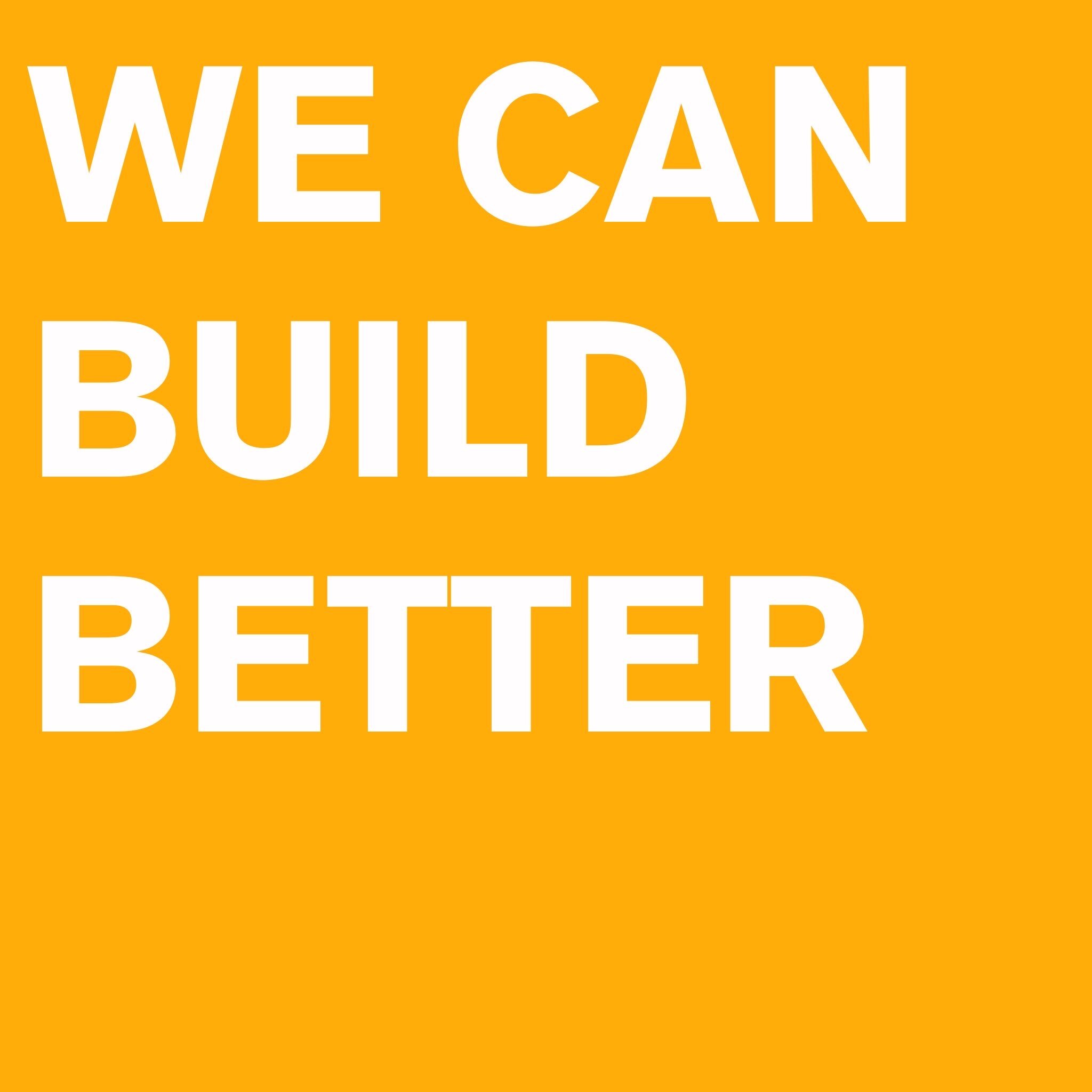We Can Build Better – Why and How?
Last month an interesting construction industry campaign kicked off across Ireland. An independent group of architects and other industry professionals came together and pooled ideas, frustrations and policy/process recommendations on the website: wecanbuildbetter.org.
WHY?
This We Can Build Better initiative is campaigning for positive changes to building in Ireland and has a particular focus on public projects and the heavily-criticised public procurement system. As stated on the website: “We think that the state is missing key opportunities to raise the quality of life for our citizens.”
By creating a forum to discuss aspects of how we build in Ireland, it is envisaged that the industry can actively influence the procedural and legislative changes required. In terms of the issues involved, the public procurement process tops the list as this impacts on so many other aspects of a given project. Many industry representatives, lobbying organisations and media commentators have highlighted the opaqueness of the current system and the disproportionately weighted priority given to cost over other factors like quality, building methodologies, past project performance, innovation and social value.
According to the We Can Build Better website, since the recovery started “there has been a substantial increase in the amount the state is spending on the construction and refurbishment of buildings. Somewhat counter-intuitively this vastly increased workload is being awarded to an ever decreasing number of architecture companies. This is because the state procurement system is unwieldy and complex, with an assessment system which is opaque and inconsistent.” Certainly, there is little to disagree with there.
The campaign maintains that “Value isn’t all about cost”, and indeed we know this to be true. In a placemaking context, the importance of social value is recognised, yet, this importance is not at all reflected in our current public procurement process. One of the particularly interesting insights from the campaign is that current suitability assessment criteria equates the turnover of a firm with the capacity of that firm i.e. the bigger the practice, the better it must be. In the private sector, we know that this simply is not true.
HOW?
Firstly, there is a call for the State to acknowledge that “quality of service is intrinsic to value for money”. Also, and this is significant, it must be stressed that “successful delivery of a future service is not dependent on only having carried out work which is similar in scale and type before [as this effectively] produces a closed loop which excludes new entrants to the market. It is anti-competitive and can lead to a monopoly”.
Among the other changes needed, the We Can Build Better initiative proposes that public project tenders recognise the social value of working with local practices and industry professionals. It also proposes collaboration between large organisations and local SMEs. For example, a joint venture arrangement between a larger organisation and a local firm – which demonstrates tier one expertise with the local knowledge, insights and sensitivities required to deliver projects – ought to score higher in assessment.
There are many more system issues identified and tackled on the website, we encourage you to take a look and add your voice to this: https://www.wecanbuildbetter.org/
At the end of the day, a better building industry is better for everyone.
With offices in Dublin and Cork, Castlehaven Finance has provided development finance for both private and social housing to developers, builders and project owners across Ireland in excess of €1.7 billion (200+ loans) since 2014. Speak to the Castlehaven Finance team about your next commercial or residential development project https://www.castlehavenfinance.com/contact
